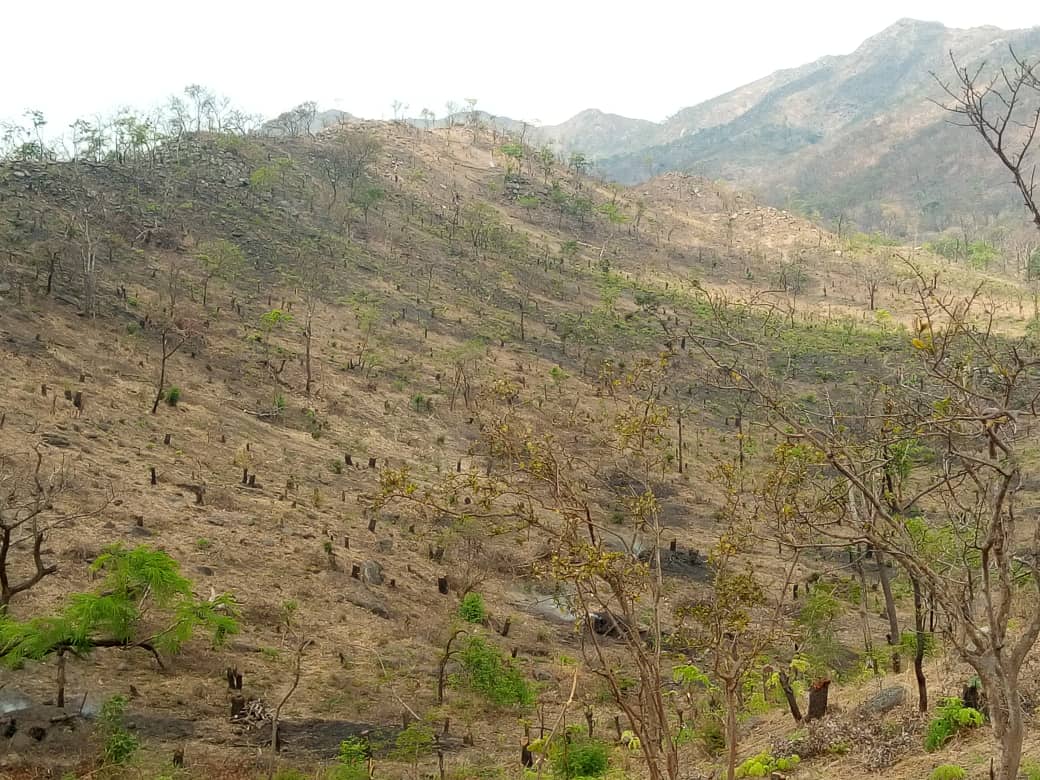As the world grapples with climate change, with Africa and other countries in developing regions, bearing the brunt of it. Humanity is waging a war on nature, causing destruction of nature in an unprecedent way, driving many into poverty and causing millions of deaths every year.
Forests play a key role in the wellbeing of humanity including food, water purification and climate change mitigation. In addition, they are home to about 80% of global biodiversity, and support livelihoods of more than one billion people around the world. Africa, like many other regions in the world is witnessing the highest global deforestation rate. Between 2015 and 2020, Africa’s deforestation rate stood at 4.41 million hectares annually. According to the 2020 Global Forest Resource Assessment. Major drivers of deforestation on the continent include agricultural developments, infrastructure developments and mining.
Michiru Forest Reserve, one of Malawi’s iconic forests, located in Southern part of the country is on the brink of destruction. The Forest Reserve was established in 1970, covering an area of 3,004 ha. The reserve is home to a variety of wildlife such as leopards, porcupines, baboons, blue and velvet monkeys, bushbucks, and birds. The forest provides direct benefits to the communities in terms of mushrooms, firewood, medicine, and is important for religious activities. Over the years, the forest has faced pressure, driven by a growing population, agricultural expansion, urbanization, and poaching leading to its degradation. Damage was further exacerbated by impacts of the COVID- 19 pandemic and Cyclone Freddy which hit the country in March 2023
It is estimated that Michiru Forest has now lost over 1,904 hectares, with most of these being indigenous trees species. It is also feared that other forms of biodiversity are quickly disappearing. For example, the Southern Crowned-Hornbill, which is a vulnerable species has not been sighted in recent years. Further, destruction of the forest has also severely impacted tourism in the area.
At the 2022 United Nations Convention to Combat Desertification (UNCCD) COP15, in Cote d Ivoire, Malawi committed to restore more than 4.5 million hectares of degraded forests by 2030, as part of the fight against climate change. Further, the country has committed itself to restoring a further 4.5 million hectares under the Bonn Challenge and the AFR100 by 2030. On the flipside green spaces in the country are disappearing at an alarming rate. It is estimated that about 7.8 million hectares of land are degraded against a total land area of 8.1 million hectares.
The Wildlife and Environmental Society of Malawi (WESM) – BirdLife Partner in Malawi – is calling for concerted efforts to bring this environmental carnage to an immediate stop. WESM is working with government agencies, including the Department of Wildlife and National Parks, and engaging with local communities through meeting with chiefs and other key stakeholders. WESM has also began a petition to create awareness on the issue. Beyond this, urgent financial support is needed to rehabilitate the forest and put in place a management plan. This plan should be developed in partnership with local communities, civil society organisations, academia and the wider public. WESM is also calling for enhanced awareness raising amongst the local communities to profile the importance of the forest. We need to act now and save Michiru Forest from destruction for the sake of this and future generations.
Image Credit: Ausward Bonongwe




